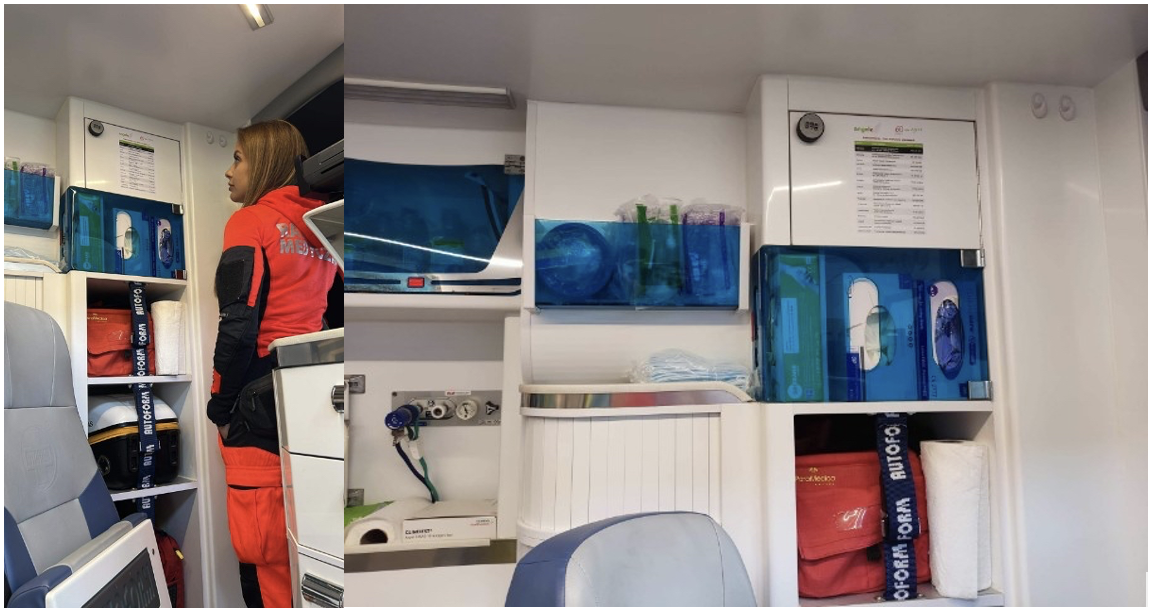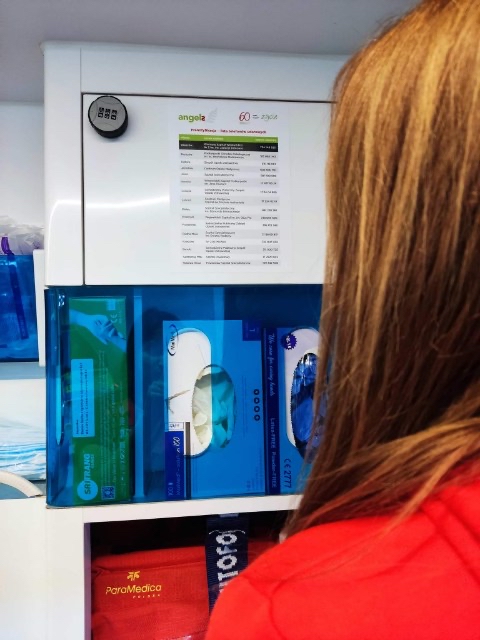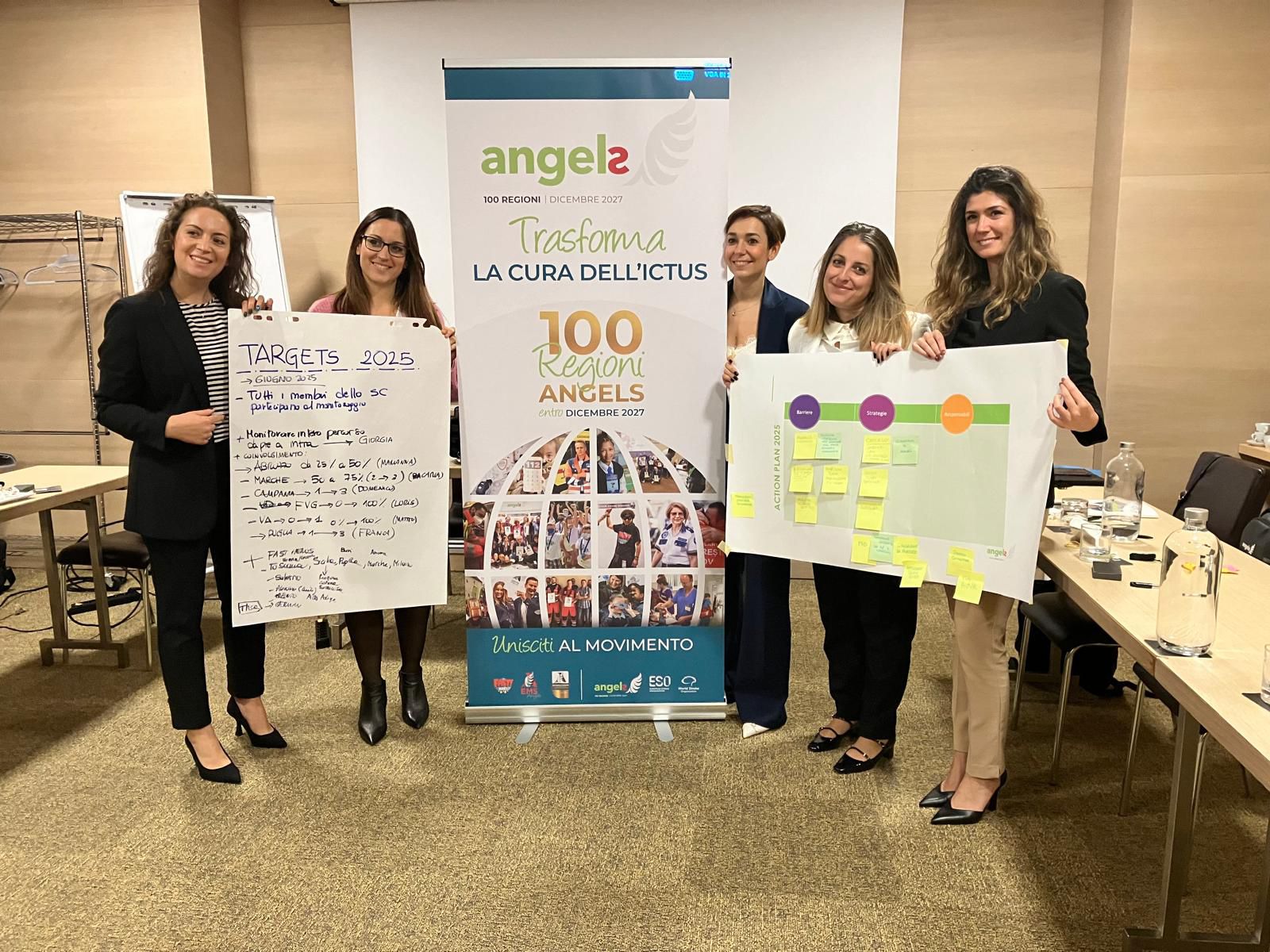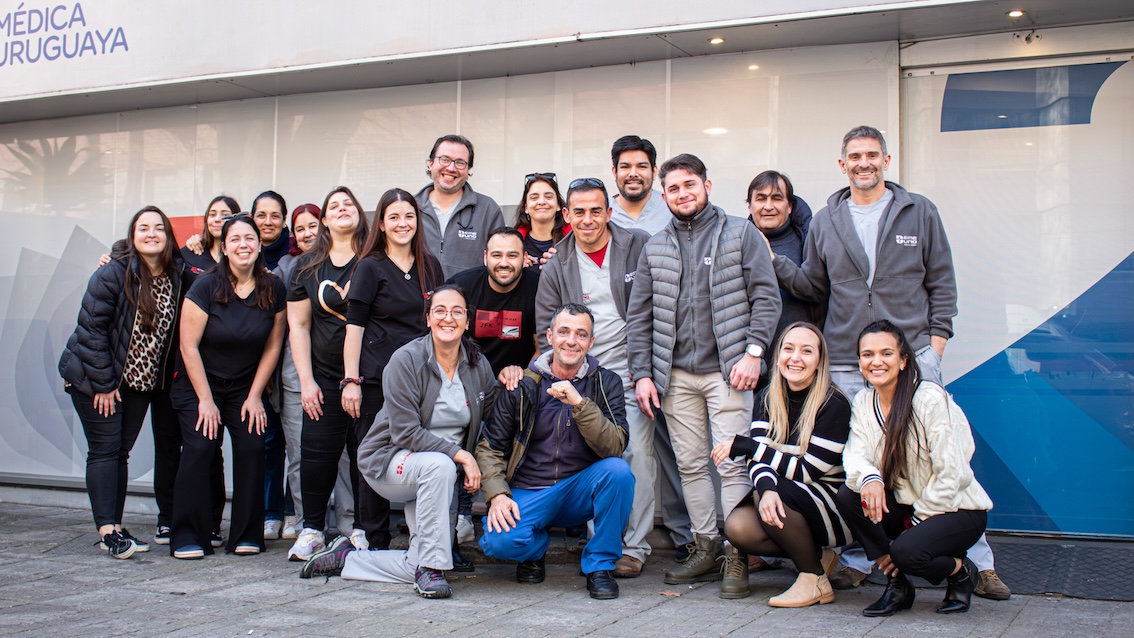
C'est une vignette ordinaire, d'environ 21 cm de hauteur et 15 cm de large. En haut à gauche se trouve le logo Angels ; les mots "60 minutes = vie" apparaissent en haut à droite, une liste de 16 numéros de téléphone ci-dessous. L’autocollant comporte une fine couche adhésive qui, lorsque vous retirez le support, colle à presque toutes les surfaces, comme le panneau intérieur d’une ambulance, par exemple.
En fait, vous êtes susceptible de trouver des autocollants exactement comme celui-ci à l'intérieur de chaque ambulance à Podkarpackie, une province montagneuse dans le coin sud-est de la Pologne où la responsabilité de la prise en charge de l'accident vasculaire cérébral incombe à Prof Halina Bartosik-Psujek qui est le consultant en neurologie de la région.
Le 23 mars de cette année, le Professeur Bartosik-Psujek a été ravi d’accueillir les responsables de la neurologie des 16 unités neuro-accident vasculaire cérébral de la province jusqu’à la première réunion régionale en face à face depuis le début de la pandémie. Ils avaient beaucoup à discuter, y compris le fait que les retards de traitement provenant des données régionales sur l’accident vasculaire cérébral pointaient vers des lacunes dans le service des SMU où la crise prolongée du Covid avait perturbé la formation, augmenté le roulement du personnel et apporté un moral faible. Le personnel d’ambulance dans toute la région n’était pas en mesure de diagnostiquer un accident vasculaire cérébral, sauf si les symptômes étaient évidents ; aucune échelle d’évaluation neurologique n’était utilisée, et la prénotification était incohérente.
Parmi plusieurs interventions qui émergeraient de la réunion régionale (y compris les ateliers de prise de décision, la formation à la simulation et la mise en œuvre du protocole FeSS), la formation aux SMU a été prioritaire. Fin avril, moins de quatre semaines après la réunion régionale, 60 membres des SMU de toute la région se retrouveraient dans la capitale provinciale prospère Rzeszöw pour deux jours de formation intensive.
Avant l’événement, Katarzyna Putyo, consultant Angels, a passé beaucoup de temps au téléphone à appeler un ensemble spécifique de numéros. Les commentaires qu'elle avait reçus des services des SMU ont indiqué que les appels aux téléphones accident vasculaire cérébral dans certaines des unités neuro-accident vasculaire cérébral de la région n'ont souvent pas répondu. Katarzyna avait l’impression que la raison de cela pouvait être simple, et lorsqu’un nombre alarmant de fois où ses appels n’ont pas répondu, elle a doublé sa tendance : les chiffres eux-mêmes pourraient-ils être erronés ?

Une explication simple
L’idée que les explications simples sont généralement meilleures que les explications complexes est un principe de résolution de problèmes attribué à William d’Ockham, mathématicien et philosophe anglais né il y a plus de 700 ans. Le " rasoir d'Ockham", comme le principe est connu, affirme qu'il faut s'appuyer sur la simplicité lors de la construction d'une théorie car les explications trop élaborées mènent souvent à une éloigne de la vérité.
Un par un, Katarzyna a appelé les hôpitaux de la province de Podkarpackie pour demander : "Quel est votre numéro d'accident vasculaire cérébral – celui où quelqu'un vient toujours chercher ?" Les réponses ont varié. Dans certains hôpitaux, le téléphone portable dédié à l’accident vasculaire cérébral était devenu inopérant après la fin du financement. Dans un hôpital de premier plan avec un parcours d’accident vasculaire cérébral organisé de manière impressionnante, le service de neurologie avait déménagé dans un nouveau bâtiment et leur nombre avait changé.
Une fois qu'elle a vérifié ou mis à jour le numéro de téléphone pour chaque accident vasculaire cérébral dans Podkarpackie, Katarzyna a appliqué un autre accident vasculaire cérébral du rasoir d'Ockham. "C'est vain à faire avec plus ce qu'on peut faire avec moins", croyait le grand Logicien. Donc, au lieu de mettre le numéro de téléphone sur le programme de formation ou de concevoir un nouveau processus pour diffuser les informations mises à jour, Katarzyna a commandé suffisamment d’autocollants pour chaque ambulance dans la province de Podkarpackie, et quelques bons autocollants à épargner.

Un outil et un déclencheur
Des symptômes d’accident vasculaire cérébral et des médicaments des patient aux échelles neurologiques, la formation dispensée par le Dr Rafal Kaczorowskide l’Hôpital clinique provincial n° 2 à Rzeszöw a couvert tous les aspects de la phase préhospitalière, y compris une démonstration vidéo du parcours du patient avec et sans prénotification. C’était une ouverture pour les équipes dont la propre voie se termine généralement aux urgences ; elles ont été frappées par la différence qu’un appel téléphonique unique pouvait apporter à une vie.
Mais si la vidéo faisait l’affaire pour la prénotification, l’autocollant en faisait encore plus. Il a supprimé les obstacles à la mise en œuvre en installant dans chaque ambulance de la province un outil et un déclencheur d’une action qui sauve des vies. Non seulement ils ont eu les numéros à appeler à portée de main, mais le message de prénotification n’a pas pu être négligé.
Après la fin de la formation, Katarzyna a été surpris de se retrouver dans la cible d’une file d’attente de participants qui recueillent un autocollant supplémentaire pour un collègue absent ou qui partagent leurs propres suggestions sur la manière dont le service peut être amélioré.
Avec l’engagement de chaque équipe SMU à prénotifier, et de chaque unité neuro-vasculaire à répondre au téléphone, Katarzyna est satisfaite que cette action prioritaire clé est désormais soutenue de toutes perspectives, y compris celles du Dr Kaczorowski et du Prof. Bartosik-Psujek dont la formidable réputation devrait être suffisante pour décourager la violation.
Les gains réalisés grâce à l’autocollant ont déjà atteint le but, car plusieurs hôpitaux signalent des voies plus lisses et de meilleurs délais de traitement suite à la prénotification. Mais pour vraiment mesurer ce qu'un autocollant peut accomplir, vous devez garder un œil sur les prix des SMU de l'année prochaine et rechercher des équipes d'ambulance de la province de Podkarpackie parmi les gagnants.



